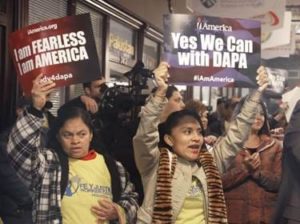
Representing injured workers in Wisconsin is a challenge; representing undocumented workers presents some additional obstacles.
Many undocumented workers toil in extremely hazardous jobs resulting in injuries. While federal law clearly bars their employment, the real world practice of hiring undocumented workers is undeniable. The U. S. Immigration and Naturalization Services and the Immigration Reform and Control Act (IRCA) have made it illegal for employers to knowingly employ undocumented workers.
Employers have attempted to use the IRCA as a defense to deny payment to injured workers by stating they would rehire the employee were it not illegal to do so. The Wisconsin Worker’s Compensation Act contains no provision for terminating disability compensation where an employee is terminated, so long as the employee is still temporarily disabled. The Commission has so indicated (see Arista-Reav Kenosha Beef, 1999 WL 370027, LIRC May 5, 1999). The Commission has routinely rejected employer claims that undocumented workers occupy a different position under workers’ compensation because they are legally precluded from obtaining other employment until they resolve their immigration status.
Employers may still argue that certain benefits are not available given the circumstances of each case. For example, federal law requires valid citizenship to qualify for vocational rehabilitation benefits, so vocational rehabilitation (school retraining) would not be available to an illegal immigrant whose permanent restrictions cannot be accommodated by the employer due to illegal status. Denying an injured illegal immigrant Loss of Earning Capacity benefits on the notion that “but for” the illegal status, the employer could accommodate permanent restrictions is a trickier question. The Commission recently ruled in Zaldivar v. Hallmark Drywall, Claim No. 2014-WL-5350849 (Sept. 30, 2014) that an undocumented worker does in fact have a Loss of Earning Capacity and that one factor in determining that loss would be his illegal status.
Other states have wrestled with the same issue and come up with a similar result. In Iowa the Supreme Court held that an undocumented worker was indeed an employee potentially entitled to benefits. Staff Management v Jimenez, 839 N.W. 2d, 640 (Iowa 2013). The Iowa Court said the purpose of IRCA was to inhibit employment of undocumented workers, not to diminish labor protections (such as workers’ compensation) for undocumented workers. Tennessee held that an undocumented worker was an employee and had the same rights under workers’ compensation that all other employees had. (See Torres v. Precision Ind, Inc. Tennessee Court of Appeals Aug 5, 2014). A similar result was reached in Wyoming (Herrera v. Phillips, 334 p. 3rd1225 (Wyo. 2014), where, after an injury, the employer asked the worker: “You’re illegal, aren’t you?”. The Pennsylvania Supreme Court reflects the rule in most states that an undocumented worker is an employee but once the employee recovers so that they can pursue some level of work, the disability benefits may be suspended. Reinforced Earth v. W.C.A.B., 810A. 2d 1999 PA 2002.
Representing undocumented workers continues to pose challenges, but the courts have recognized their right to compensation for work injuries.


